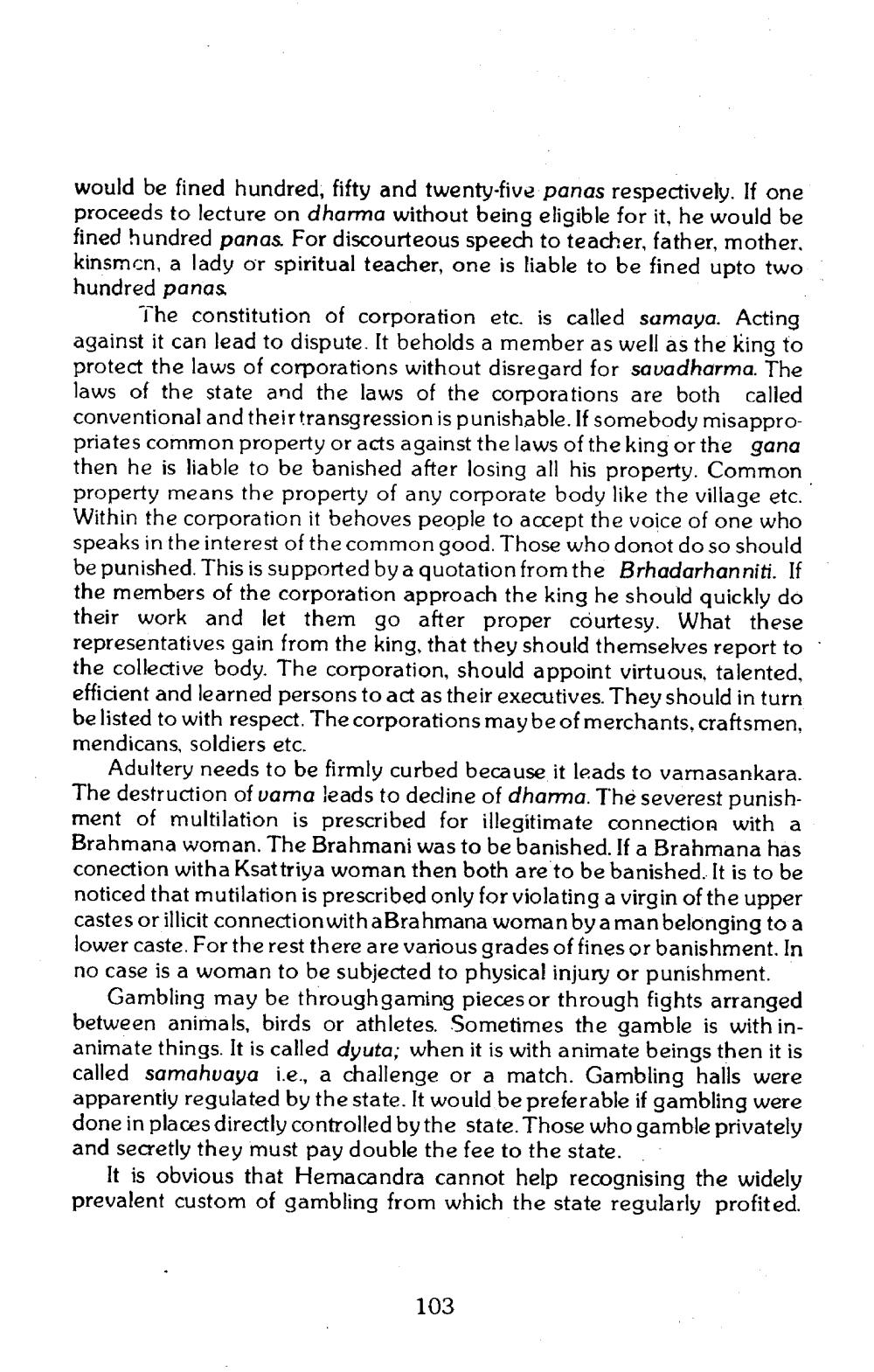________________
would be fined hundred, fifty and twenty-five panas respectively. If one proceeds to lecture on dharma without being eligible for it, he would be fined hundred panas. For discourteous speech to teacher, father, mother, kinsmcn, a lady or spiritual teacher, one is liable to be fined upto two hundred panas
The constitution of corporation etc. is called samaya. Acting against it can lead to dispute. It beholds a member as well as the king to protect the laws of corporations without disregard for savadharma. The laws of the state and the laws of the corporations are both called conventional and their transgression is punishable. If somebody misappropriates common property or acts against the laws of the king or the gana then he is liable to be banished after losing all his property. Common property means the property of any corporate body like the village etc. Within the corporation it behoves people to accept the voice of one who speaks in the interest of the common good. Those who donot do so should be punished. This is supported by a quotation from the Brhadarhan niti. If the members of the corporation approach the king he should quickly do their work and let them go after proper courtesy. What these representatives gain from the king, that they should themselves report to the collective body. The corporation, should appoint virtuous, talented, efficient and learned persons to act as their executives. They should in turn be listed to with respect. The corporations may be of merchants, craftsmen, mendicans, soldiers etc.
Adultery needs to be firmly curbed because it leads to varnasankara. The destruction of vama leads to decline of dhamma. The severest punishment of multilation is prescribed for illegitimate connection with a Brahmana woman. The Brahmani was to be banished. If a Brahmana has conection witha Ksat triya woman then both are to be banished. It is to be noticed that mutilation is prescribed only for violating a virgin of the upper castes or illicit connection with a Brahmana woman by a man belonging to a lower caste. For the rest there are various grades of fines or banishment. In no case is a woman to be subjected to physical injury or punishment.
Gambling may be throughgaming pieces or through fights arranged between animals, birds or athletes. Sometimes the gamble is with inanimate things. It is called dyuta; when it is with animate beings then it is called samahuaya i.e., a challenge or a match. Gambling halls were apparently regulated by the state. It would be preferable if gambling were done in places directly controlled by the state. Those who gamble privately and secretly they must pay double the fee to the state.
It is obvious that Hemacandra cannot help recognising the widely prevalent custom of gambling from which the state regularly profited.
103




